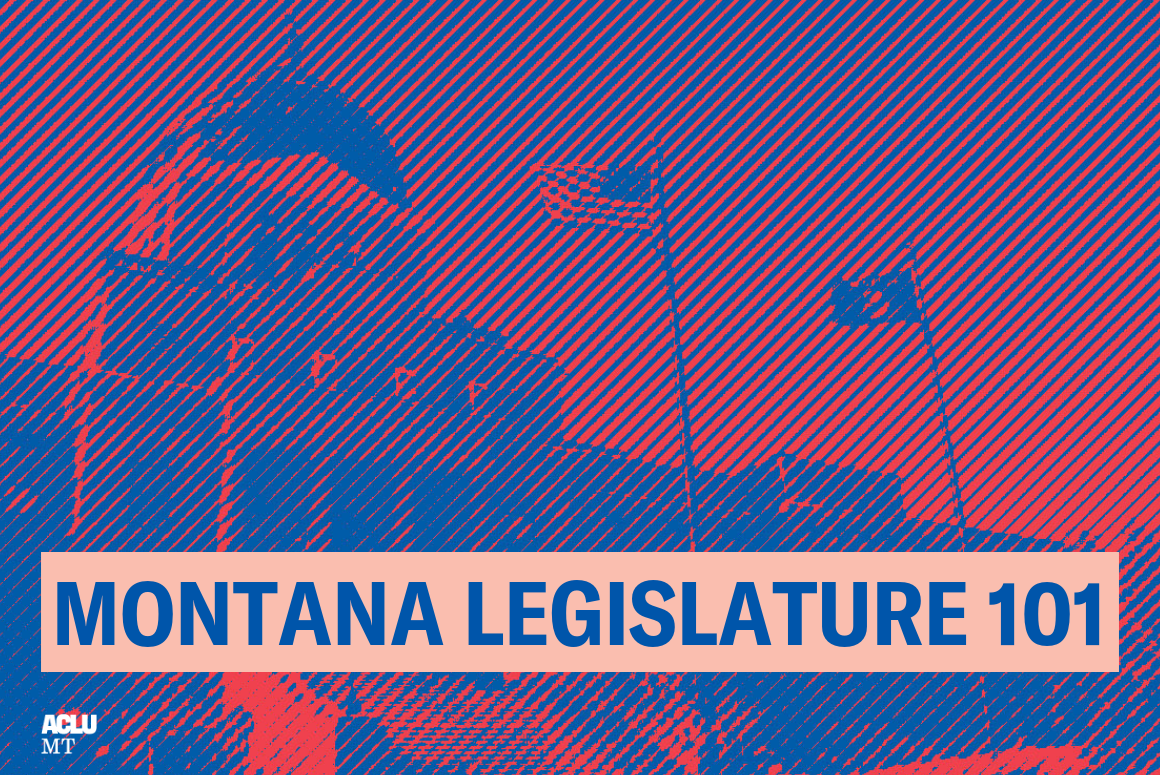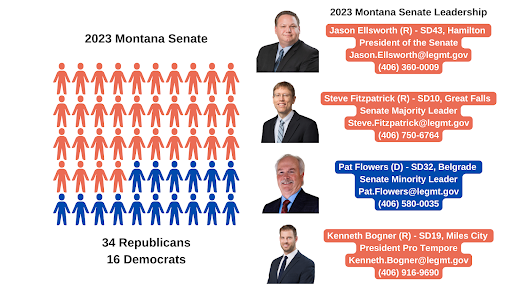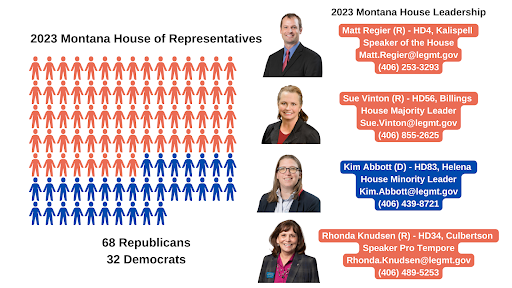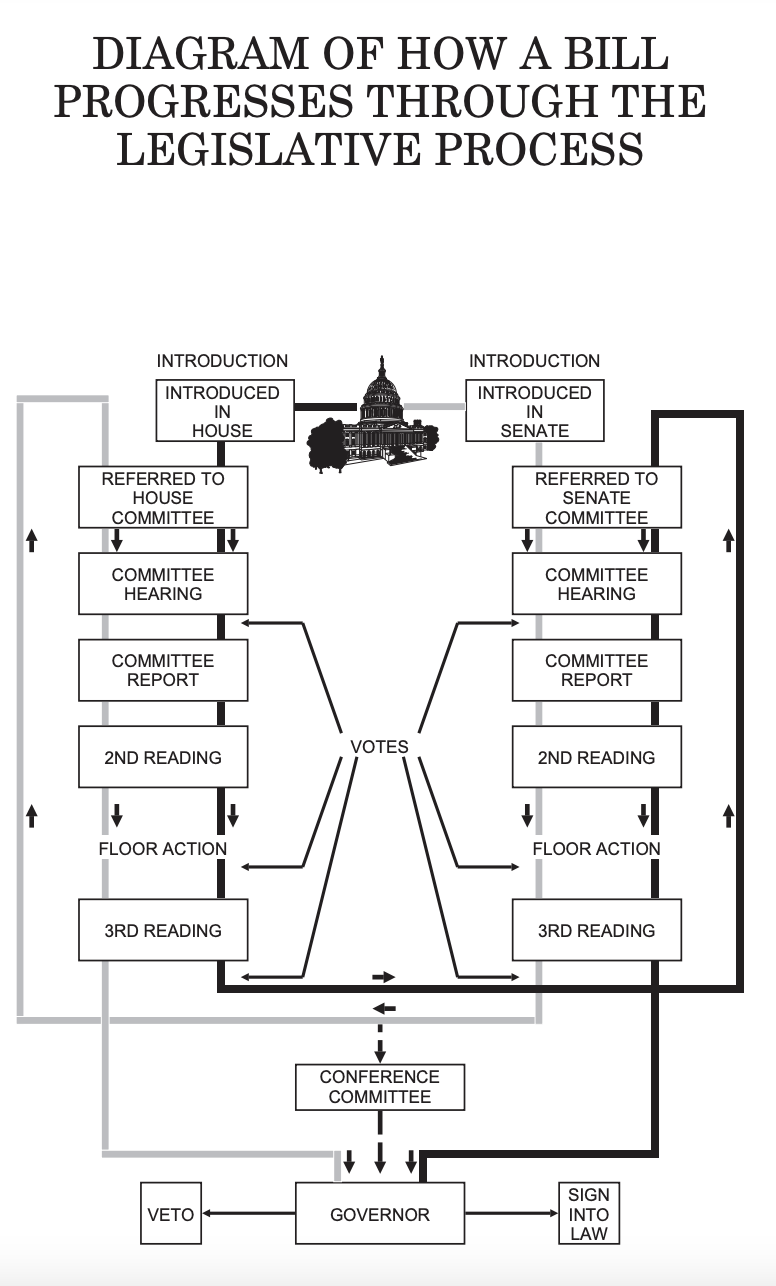
The Montana Legislature, which currently meets for 90 days in each odd-numbered year for the legislative session, is composed of 150 Legislators, 50 senate seats and 100 house seats. During those 90 days, the Legislature is expected to pass a budget, evolving from the Governor’s proposed budget, and also make laws that affect the daily lives of Montanans on issues ranging from the environment, to reproductive and sexual health, taxes, LGBTQ Rights, and everything in between. Legislators also work outside of the legislative session during the “interim” period - participating in committee meetings, connecting with constituents, and engaging in other political activities.
As a “people’s legislature,” Montana’s legislators should come from and reflect hard-working, everyday Montanans, but this also means that it is your legislature too. We all should strive to participate in our electoral process and voice our opinions on what matters to us.
After the 2022 election, the Montana Republican Party holds a “supermajority” in the legislature, representing 102 out of the 150 seats (68%). This robust majority reinforces the ability to pass the Republican legislative agenda through bills, and empowers Republicans to introduce constitutional referendums or call a constitutional convention. Either of the latter efforts requires at least 100 legislators to vote in the affirmative.
The Montana Senate is the upper chamber of Montana’s bicameral (two-tiered) legislature featuring 50 senators from across Montana.

The Montana House of Representatives is the lower house of Montana’s bicameral (two-tiered) legislature featuring 100 Representatives from across Montana.

How a Bill Becomes a Bill
Bills can originate from any of the following paths:
- Legislators
- Constituents
- Government agencies
- Interim Committees
- Interest Groups
- Court Decisions
Bill Draft Requests:
- Legislative Services, a non-partisan legislative agency, receives requests to draft bills, often either introducing new code (law) or amending current code, turning ideas into proper legal written documents for consideration by the legislature.
- Upon drafting, the bill may collect sponsor(s), legislators committed to endorsing the bill and ushering it through the legislative process, including formally introducing it by filing it with the Chief Clerk of the House or the Secretary of the Senate.
Introduced Bills:

For more about the legislature and how a bill becomes law, check out this guide from 2019.
How to Get Involved
Speak Out On The Issues
- Advocate on the issues you are passionate about and connect with family, friends, and other community members on issues important to you and them. We are stronger together.
Learn Who Your Legislator Is
- Use the Legislator Lookup Tool or here.
Learn What Motivates Them
- Read trusted news sources from Local journalists, Montana Free Press, and High Country News about candidates and parties.
- Leg.mt.gov gives you their phone number and email, information about how long they have served in the legislature, the bills they are involved with, and the committees they serve on.
- Votesmart.org provides a tool to see how your opinions align with your representative. It also has an archive of speeches, and an easy to understand rating system by other organizations.
- Campaign Electronic Reporting System dashboard allows people to look into campaign contributions for specific candidates, PACs, businesses, etc.
- Ballotopedia.org provides in depth historical information about all the past committees they have served on, bills they have sponsored, and campaign finance information.
Contact Your Legislator. Call, Email, Write, & Meet
- Each Legislator will have a phone number, email, and address available online. Access the information here.
- Name the bill number you are supporting or opposing
- Share your story, opinion, and data. Use templates from the ACLU of Montana and other organizations you support, but edit and personalize them.
- Begin and end with an action, e.g.: “Vote No on SB19.”
Follow Your Legislator on Social Media
- Many Legislators have Facebook, Twitter, and Instagram accounts providing you access into their opinions, beliefs, and life.
- This provides up-to-date information and another space to advocate for your beliefs and connect with other community members
- Use the above “Contact Your Legislator” strategy on Social Media.
Give Testimony during the Legislative Session
- Since the onset of the COVID-19 Pandemic, Montanans are now able to provide testimony remotely through zoom or written comment, as well as, testimony at the Helena Capitol during Committee Hearings. Find more information and the process here.
Attend Rallies, Sit-Ins, & Protests
- Direct Action is a necessary and effective tool to oppose aggressive efforts to expand government and attacks on marginalized communities.
Other Ways To Be Involved
- Follow the ACLU of Montana’s Twitter, Instagram, Facebook, and Website
- Sign up for our Action Alerts
- Organize and participate in social media advocacy
- Write a letter to the Editor
- Write an op-ed
Stay Informed
Sign up to be the first to hear about how to take action.
By completing this form, I agree to receive occasional emails per the terms of the ACLU’s privacy statement.
By completing this form, I agree to receive occasional emails per the terms of the ACLU’s privacy statement.
